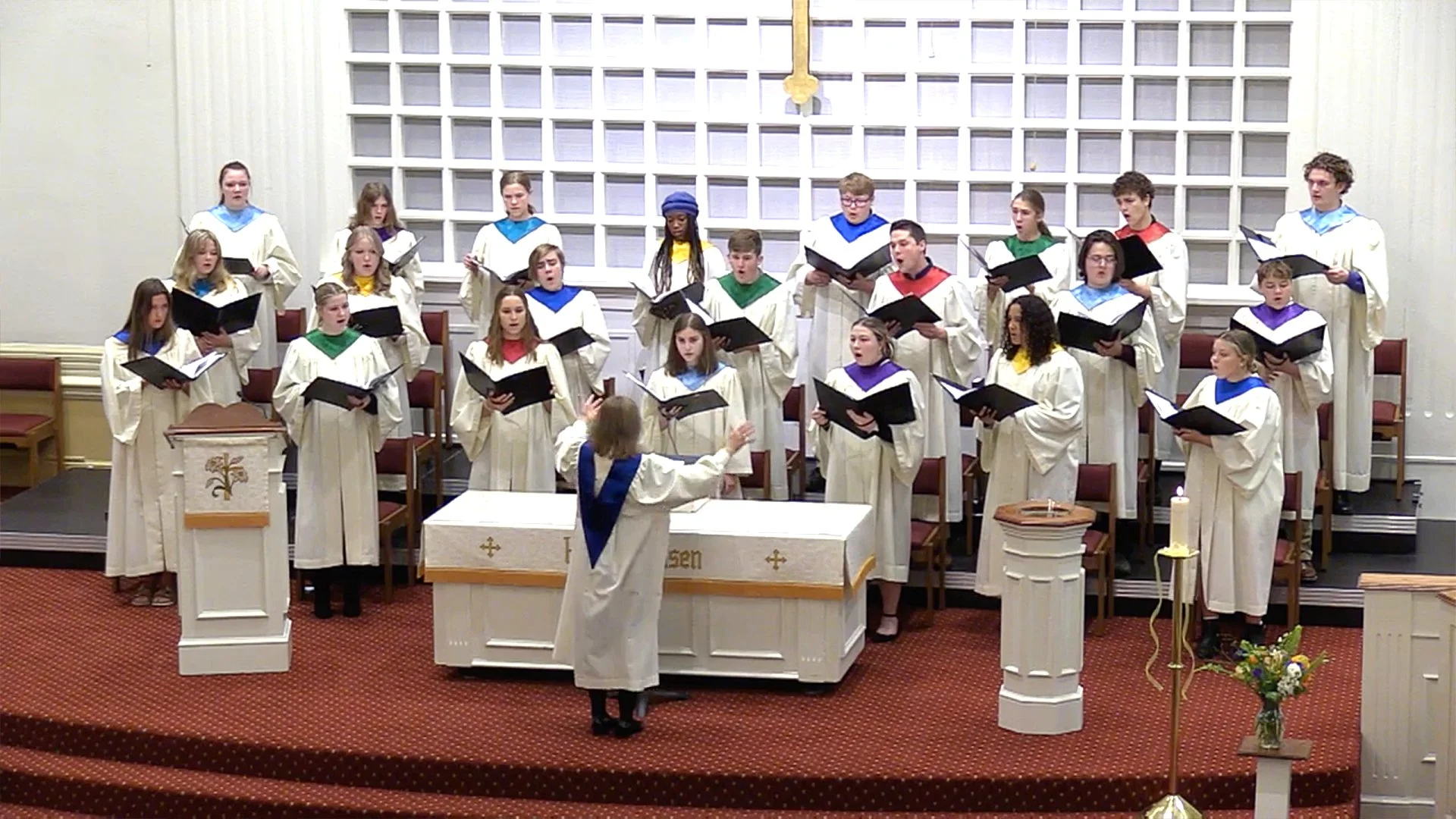Hymn of the Week: April 3, 2023
Were You There
Glory to God: 228
Text and Music African American Spiritual
Were you there when they crucified my Lord? (Were you there?)
Were you there when they crucified my Lord?
O! Sometimes it causes me to tremble, tremble, tremble.
Were you there when they crucified my Lord? (Were you there?)
Were you there when they nailed him to the tree? (Were you there?)
Were you there when they nailed him to the tree?
O! Sometimes it causes me to tremble, tremble, tremble.
Were you there when they nailed him to the tree? (Were you there?)
Were you there when they pierced him in the side? (Were you there?)
Were you there when they pierced him in the side?
O! Sometimes it causes me to tremble, tremble, tremble.
Were you there when they pierced him in the side? (Were you there?)
Were you there when the sun refused to shine? (Were you there?)
Were you there when the sun refused to shine?
O! Sometimes it causes me to tremble, tremble, tremble.
Were you there when the sun refused to shine? (Were you there?)
Were you there when they laid him in the tomb? (Were you there?)
Were you there when they laid him in the tomb?
O! Sometimes it causes me to tremble, tremble, tremble.
Were you there when they laid him in the tomb? (Were you there?)
Opt. 6 Were you there when he rose up from the dead?
Were you?
Trying to absorb, deflect, or cope with medical questioning about what must have caused her husband’s death, Joan Didion kept wanting to blurt out, “were you there?” She didn’t need to “review the circumstances of the death.” Why? Because she was there.
None of us were
A plaintive old hymn asks, “Were you there?” Where? “When they crucified my Lord,” “when they nailed him to a tree,” “when they pierced him in the side”, “when the sun refused to shine,” “when they laid him in the tomb.” None of us were, although the Gospels, centuries of prayers, hymns, and sermons have done their best to take us to that very place, those unspeakably grievous events of Good Friday.
This hymn would have been fitting for the first Holy Saturday. What a bleak day that must have been. Thos who loved Jesus were numb with grief and guilt. Their teacher and healer had been gruesomely executed, yet most of them had been too scared to stick around. Only a few lingered at the cross. Jesus’ other closest friends only heard about it the way we hear about it. “Were you there?” No – but then again, yes. Trying to stave off bitter disappointment and disillusionment, they all hung their heads.
Pregnant Emptiness
Alan Lewis calls Holy Saturday “a significant zero, a pregnant emptiness, a silent nothing which says everything.” We live our lives – don’t we? – in between, like Holy Saturday. Talk to a widow whose husband died of cancer last year. She has seen Good Friday. She believes in the Easter resurrection, but for now she is in between.
God could have raised Jesus immediately or levitated him directly from the cross into heaven. But God waited. God did nothing for a time. God, being the kind of God we know and love, knew we would experience life and loss in just this way. We cling to hope. But the waiting can be a silent nothing. And so we wait. We live in between.
C.S. Lewis shared the grief he felt when his wife, Joy, died:
No one ever told me that grief felt so like fear. I am not afraid, but the sensation is like being afraid. The same fluttering in the stomach, the same restlessness, the yawning. I keep on swallowing. At other times it feels like being mildly drunk or concussed. There is a sort of invisible blanket between the world and me. I find it hard to take in what anyone says. Or perhaps, hard to want to take it in. It is so uninteresting.
Our hymn spends much of its time on a long, moaning sound that barely qualifies as a word: “Oh….oh….oh.” And we “tremble, tremble, tremble.” Musically, by not peppering us with multiple words, the hymn sounds like we feel. The ache, the inarticulate inability to say or do anything, this anguished, “Oh” draws our minds toward what I count as Paul’s single greatest gift to us in all of his letters. After his insight that “the sufferings of this present time” are the whole creation “groaning in labor pains,” he offers the most profound mercy: “The Spirit helps us in our weakness: for we do not know how to pray as we ought, but that very Spirit intercedes with sighs too deep for words” (Roms. 8: 18-26). When there are no words, when you almost cry out, “Were you there?” When one despairing sigh after another sagging groan is exhaled from your soul, it’s not despair; it is the Spirit praying in you, for you, and with you. It is the prayer God loves; the trembling “Oh….oh…oh” of Holy Saturday.
Sources
Joan Didion, The Year of Magical Thinking (New York: Vintage Books, 2005), 56.
Alan E. Lewis, Between Cross and Resurrection: A Theology of Holy Saturday (Grand Rapids, MI: Eerdmans, 2001), 3.
C.S. Lewis, A Grief Observed (New York: Bantam Books, 1976), 1.







